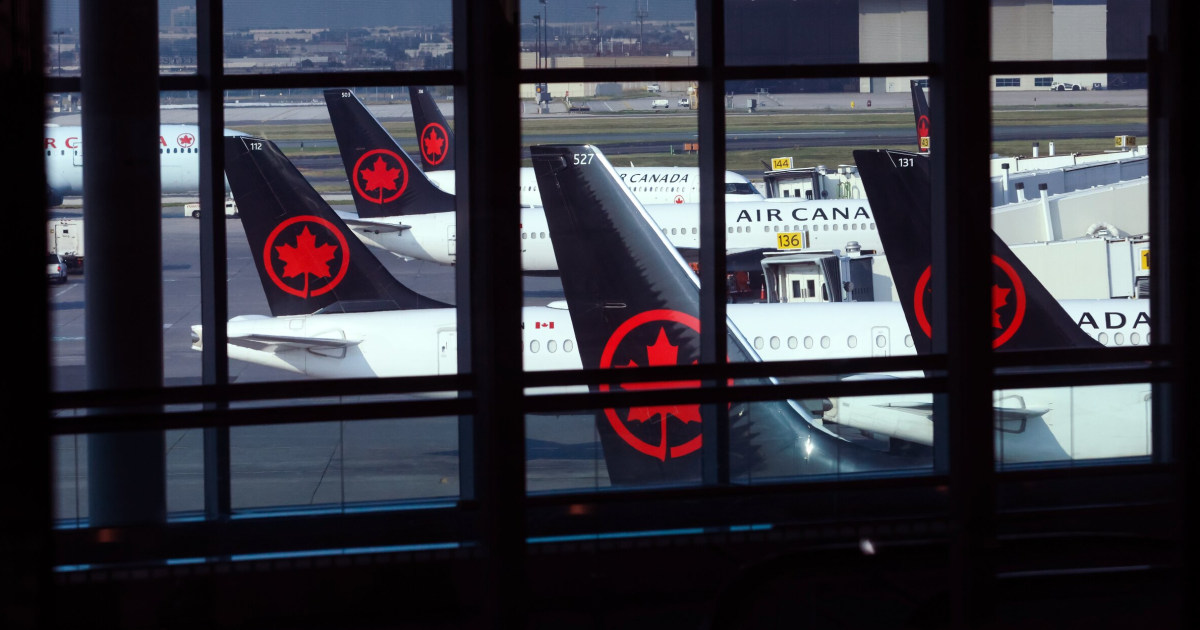Is Air Canada Grounded Forever with Flight Attendants on Strike?

Understanding the Impact of the Air Canada Flight Attendant Strike
The recent strike initiated by over 10,000 Air Canada flight attendants has sent shockwaves throughout the travel industry, especially during the peak summer season. With the airline halting all operations, travelers worldwide are left grappling with uncertainty. This article delves into the details surrounding the strike, its implications for travelers, and the broader context of labor negotiations in the airline industry.
The Background of the Strike
On Saturday morning, Air Canada confirmed that all operations were suspended following the flight attendants' decision to strike. The Canadian Union of Public Employees (CUPE) announced that the deadline for reaching a contract agreement had passed, leading to the job action. The dispute centers around a bitter contract negotiation that has been ongoing for about eight months, with significant disagreements related to wages and work conditions.
The union's decision to reject Air Canada's request for government-directed arbitration has been a pivotal moment in this negotiation process. Such arbitration would have removed the right to strike, placing the decision-making in the hands of a third-party mediator. However, CUPE's representatives emphasized their commitment to bargaining, stating their willingness to negotiate without resorting to a strike.
The Immediate Impact on Travelers
With Air Canada operating around 700 flights daily, the suspension of services affects approximately 130,000 people each day. Many travelers, like Montreal resident Alex Laroche, find themselves in precarious situations, with costly non-refundable travel plans and no clear resolution in sight. Laroche's predicament highlights the emotional and financial toll that such strikes can impose on ordinary citizens.
The airline has stated that passengers affected by the strike can request full refunds through its website or mobile app. Additionally, Air Canada is attempting to provide alternative travel options through other airlines, although the high demand for flights during the summer season complicates this effort. Travelers are facing full flights and significantly higher prices, leaving many with few viable options.
Understanding the Contract Disputes
At the heart of the strike lies the contentious issue of wages. Both Air Canada and CUPE have publicly acknowledged that they are far apart on compensation. The airline's latest offer proposed a total compensation increase of 38% over four years, which it claimed would position its flight attendants as the highest-paid in Canada. However, the union contends that this offer does not sufficiently address the rising cost of living and inflation, particularly given the proposed 8% increase in the first year.
Public Sentiment and Broader Implications
Public sentiment around the strike appears to be mixed. While some travelers express frustration towards the union's decision, others empathize with the flight attendants' plight, recognizing the challenges they face regarding wage stagnation and working conditions. The sentiment aligns with broader labor movements across various industries, where employees are increasingly advocating for fair wages and better working conditions.
The Role of Government and Mediation
Federal Jobs Minister Patty Hajdu has urged both parties to intensify their negotiations to reach an agreement. The government has a vested interest in ensuring that the airline industry operates smoothly, particularly during the busy summer months when travel peaks. Mediation could play a crucial role in resolving the dispute, but both Air Canada and CUPE must demonstrate a willingness to compromise.
What Lies Ahead for Air Canada and Its Employees
The question of how long the strike will last remains uncertain. Air Canada's Chief Operating Officer, Mark Nasr, has suggested that it could take up to a week to fully resume operations once an agreement is reached. This uncertainty looms large over travelers, many of whom are left in limbo, hopeful for a resolution but uncertain about their immediate travel plans.
Potential Outcomes and Future Negotiations
As both sides prepare for further negotiations, observers are keenly watching the developments. The resolution of this strike could set a precedent for future labor negotiations within the airline industry and beyond. A successful agreement could restore trust and stability in Air Canada's operations, while failure to reach an understanding could lead to prolonged disruptions and heightened tensions.
Conclusion
The Air Canada flight attendant strike is a critical moment that highlights the ongoing struggles within the labor market, particularly in essential industries like aviation. As negotiations continue, the stakes are high for both the airline and its employees, as well as for the thousands of travelers impacted by the disruption. The outcome of this situation could have lasting effects on the airline's workforce and the broader travel industry.
Frequently Asked Questions
What led to the Air Canada flight attendants' strike?
The strike resulted from unresolved contract negotiations between Air Canada and the Canadian Union of Public Employees, primarily over wage disputes and working conditions.
How many travelers are affected by the strike?
The strike impacts approximately 130,000 travelers daily, with many facing significant challenges regarding their travel plans.
What options do travelers have during the strike?
Travelers can request refunds through Air Canada's website or mobile app, and the airline is attempting to provide alternative travel options, although availability may be limited.
How long might the strike last?
It is uncertain how long the strike will continue, but Air Canada's COO has indicated it could take up to a week to resume operations after an agreement is reached.
What are the potential implications of this strike on the airline industry?
The outcome of the strike could influence future labor negotiations in the airline industry and set a precedent for how similar disputes are handled moving forward.
As we witness the unfolding developments in this situation, one must ponder: how do we balance the needs of employees with the expectations of travelers in an increasingly demanding industry? #AirCanada #LaborStrike #TravelDisruptions
```Published: 2025-08-16 05:47:02 | Category: Trump GNEWS Search



